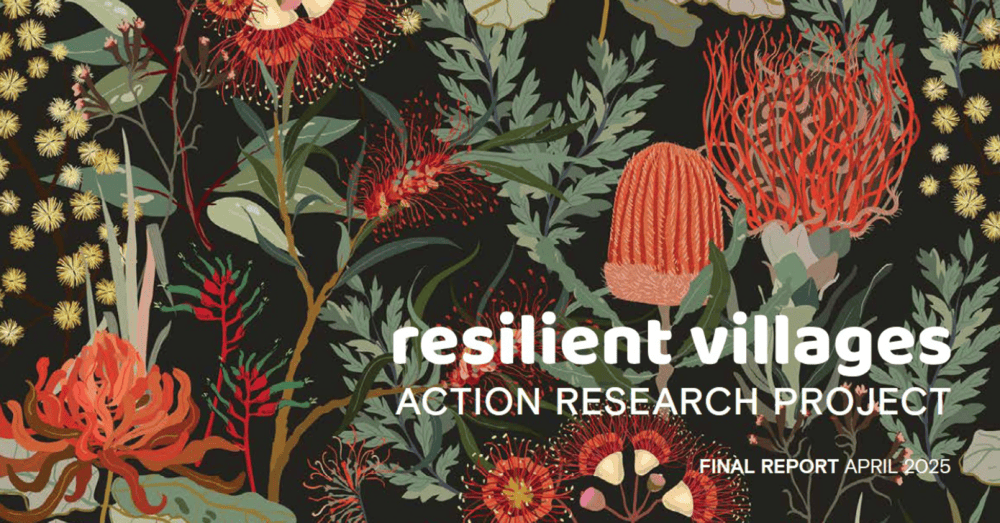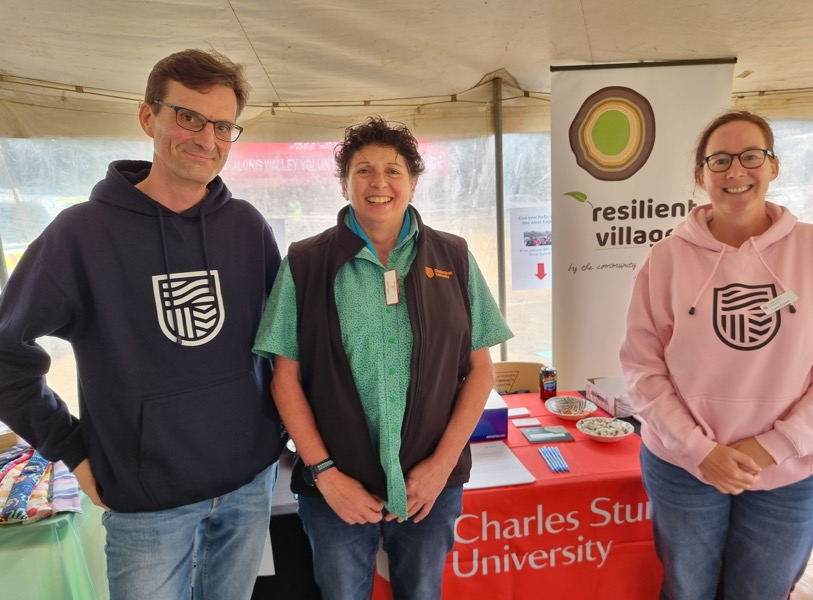Action research supports Resilient Villages project to build disaster resilience in vulnerable Blue Mountains communities.

The newly published final report (Howard et al., 2025), titled Resilient Villages: Action Research Project, involved Associate Professor Valerie Ingham and Dr Lucia Wuersch from Charles Sturt University and researchers from the University of Sydney.
The research project was carried out over three years to assess the Resilient Villages Pilot Project, which supported disaster-prone communities in the Blue Mountains. It was a federally funded initiative, awarded to Mountains Community Resource Network, aiming to develop long-term, community-led strategies for disaster resilience instead of creating new programs that communities could not sustain after funding ended.
The research team worked closely with the Resilient Villages Team, made up of local community development workers, to support their planning and strategy for each participating village. The aim was to create Resilience Action Plans. Participating in various local events, such as the Megalong Valley Expos and Makers Markets in participating villages, built trustworthy connections, laying a foundation for potential future projects.
The research found that an integrated trauma-informed approach, coupled with community development and coordination with emergency management agencies, is essential for disaster resilience. The shift from traditional top-down strategies to more flexible, locally informed practices could guide local councils in their disaster preparedness and response initiatives.
The research was presented at the 9th Regulating for Decent Work Conference, organised by the International Labour Office, from 2 to 4 July 2025 in Geneva, Switzerland.
Read the final Resilient Villages report

The Resilient Villages Action Research Project has established a practical, community-led framework for enhancing disaster resilience in vulnerable communities. It underscores the success of trauma-informed, locally driven methods and provides guidance for incorporating community voices into emergency planning and policy at local and regional levels.
Research problem
Traditional top-down disaster preparedness strategies often fail to consider the specific needs, trauma histories and social dynamics of local communities, especially in areas prone to cascading disasters. There is a need for sustainable, community-led approaches that promote long-term resilience and can be sustained beyond short-term government funding cycles.
Collaborators
Outcomes
Impact
Beneficiaries